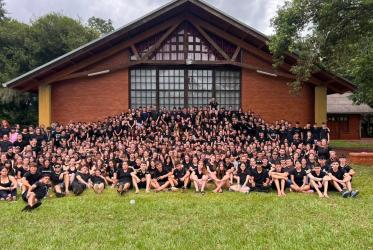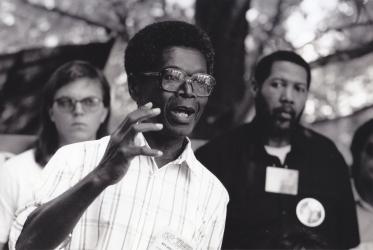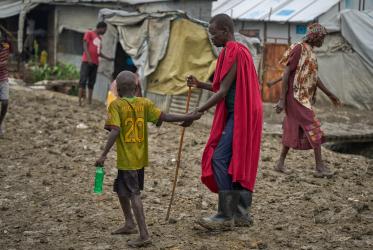Displaying 1 - 20 of 1006
WCC extends prayers for lasting peace in Haiti
11 April 2024
WCC, WHO commemorate 50 years of collaboration
04 April 2024
South Sudan churches share Easter messages of hope
04 April 2024
Compendium of Promising Practices of African Faith Community Interventions against Paediatric and Adolescent HIV
Executive Summary
23 March 2024
WCC backs extension of ceasefire in Colombia
18 January 2024
Faith Actors Reflect on Their Role in Reaching HIV Goals at ICASA
21 December 2023
Churches in Africa agree on guidelines for disability inclusion
19 December 2023


















